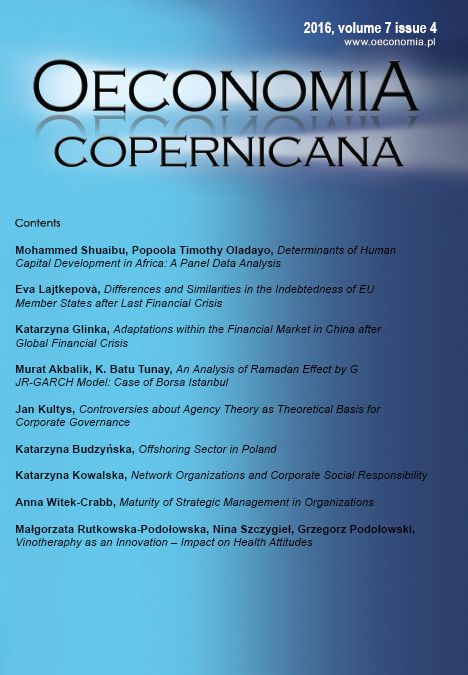DETERMINANTS OF HUMAN CAPITAL DEVELOPMENT IN AFRICA: A PANEL DATA ANALYSIS
DETERMINANTS OF HUMAN CAPITAL DEVELOPMENT IN AFRICA: A PANEL DATA ANALYSIS
Author(s): Mohammed ShuaibuSubject(s): Economy, Supranational / Global Economy, Socio-Economic Research
Published by: Instytut Badań Gospodarczych
Keywords: human capital; Africa; health; education; panel data analysis
Summary/Abstract: Africa is regarded as the least developed continent in terms of overall development and specifically in terms of human capital development (HCD) efforts. Research on the determinants of HCD in Africa is scanty, as the literature is dominated by country-specific studies as well as group of country studies that primarily focus on the effect of human capital on growth and other economic development parameters. Therefore, this paper investigates the determinants of human capital development in 33 African countries over a 14-year period from 2000 to 2013. The empirical analysis is predicated on Sen’s capability approach that was modified following Binder and Georgiadis (2011) in order to explicitly account for the role of health, infrastructure and institutions as potential drivers of HCD. This is a departure from previous studies that focused primarily on the role of education. In addition to preliminary tests such as line plot, descriptive statistics and correlation analysis carried out, the data is analysed using panel unit root, co-integration and causality techniques. Findings show that all the variables are integrated of order one while HCD and its determinants have a stable long-run equilibrium relationship. Specifically, all the variables significantly influence HCD in the long run, whereas the contemporaneous models suggest that only institutions matter. Utilizing alternative estimators as well as estimation of subsamples, robustness tests reinforce our findings. Therefore, African governments may consider supporting HCD through sustained investment in the education and health sectors. At the same time, short-term gains may be attained through enhanced institutional quality and infrastructure development.
Journal: Oeconomia Copernicana
- Issue Year: 7/2016
- Issue No: 4
- Page Range: 523-549
- Page Count: 27
- Language: English

